1. Ronald Reagan
2. Elizabeth Cady Stanton
3. Douglas MacArthur
4. Eli Whitney
5. George Washington
6. John Adams
7. Martin Luther King Jr.
8. Franklin D. Roosevelt
9. John D. Rockefeller
10. William Lloyd Garrison
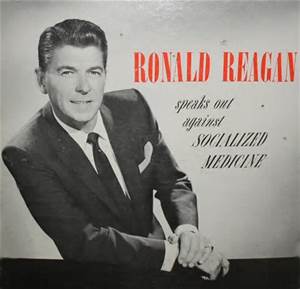

Ronald Reagan was elected president in 1981. He is best known for believing in individual freedom and bringing a significant amount of change domestically. His two terms were deemed the Reagan Revolution, with it's biggest accomplishment being reinvigorating the American morale. He was very involved in reviving the US economy, with his biggest policy being 'Reaganomics'. He advocated a type of supply-side economics and free-market fiscal policy. Reagan also helped lessen American reliance of big government by promoting a laissez-faire economy. Although he desired to cut government intervention, he kept entitlement programs such as Social Security and Medicare. Reagan was also very conservative in many aspects of his beliefs, and many deem that he started the wave of New Conservatism. In 1984, Reagan was reelected as president and was faced with a whole new batch of challenges. In 1982, Reagan announced that America will be starting an official War on Drugs. His policies helped reduce rates of adolescent drug use throughout America. In the mid-1980's, Reagan made a monumental decision to shift his interests to diplomacy with regards to the conflict with Russians occupying Germany. He initiated a series of arms agreements with Soviet leader Mikhail Gorbachev. When Reagan made a speech at the Berlin Wall in 1987, he spoke words that will live in infamy: "General Secretary Gorbachev, if you seek peace, if you seek prosperity for the Soviet Union and Eastern Europe, if you seek liberalization, come here to this gate! Mr. Gorbachev, open this gate! Mr. Gorbachev, tear down this wall!" Throughout Reagan's presidency, he influenced many sectors of government, both on the national and international level. Reagan was definitely an extremely influential individual.

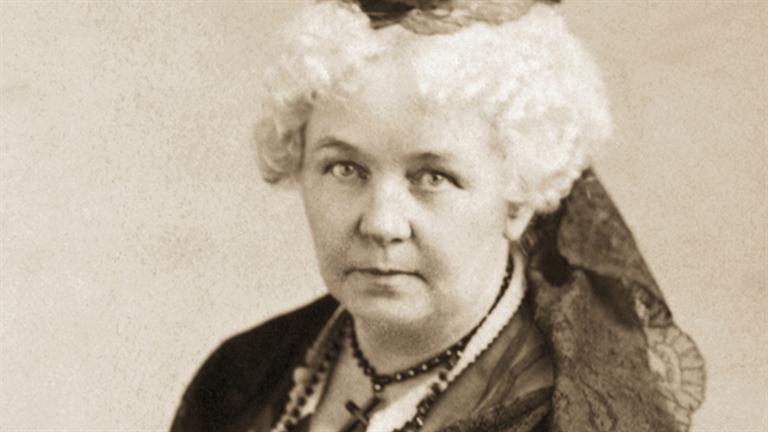 Elizabeth Cady Stanton was an abolitionist, suffragist, and truly extraordinary woman. A pioneer challenging the restraints placed on women in the 1800s, her famed Seneca Falls Convention of 1848 is considered to have sparked one of the most significant woman’s rights and woman’s suffrage movements in the United States. Stanton not only demanded the right to vote, but she also sought to better women’s parental and custody rights, property rights, and employment and income rights. With other like-minded feminists at the Convention, Stanton co-authored the daring Declaration of Sentiments, a proclamation which helped spark public debate regarding suffrage. Following the success of Seneca, Stanton organized, attended, and spoke at numerous other conventions. Her intellect, rapier wit, and eloquence drew attention from admirers and dissidents alike, and ultimately advanced her cause. Later, alongside the unwavering Susan B. Anthony, Stanton formed the National Woman Suffrage Association in 1869. Stanton’s relentless determination and her spitfire attitude mark her as one of the most notable feminists in American history, and leave no doubt as to her right to be called “influential.”
Elizabeth Cady Stanton was an abolitionist, suffragist, and truly extraordinary woman. A pioneer challenging the restraints placed on women in the 1800s, her famed Seneca Falls Convention of 1848 is considered to have sparked one of the most significant woman’s rights and woman’s suffrage movements in the United States. Stanton not only demanded the right to vote, but she also sought to better women’s parental and custody rights, property rights, and employment and income rights. With other like-minded feminists at the Convention, Stanton co-authored the daring Declaration of Sentiments, a proclamation which helped spark public debate regarding suffrage. Following the success of Seneca, Stanton organized, attended, and spoke at numerous other conventions. Her intellect, rapier wit, and eloquence drew attention from admirers and dissidents alike, and ultimately advanced her cause. Later, alongside the unwavering Susan B. Anthony, Stanton formed the National Woman Suffrage Association in 1869. Stanton’s relentless determination and her spitfire attitude mark her as one of the most notable feminists in American history, and leave no doubt as to her right to be called “influential.”
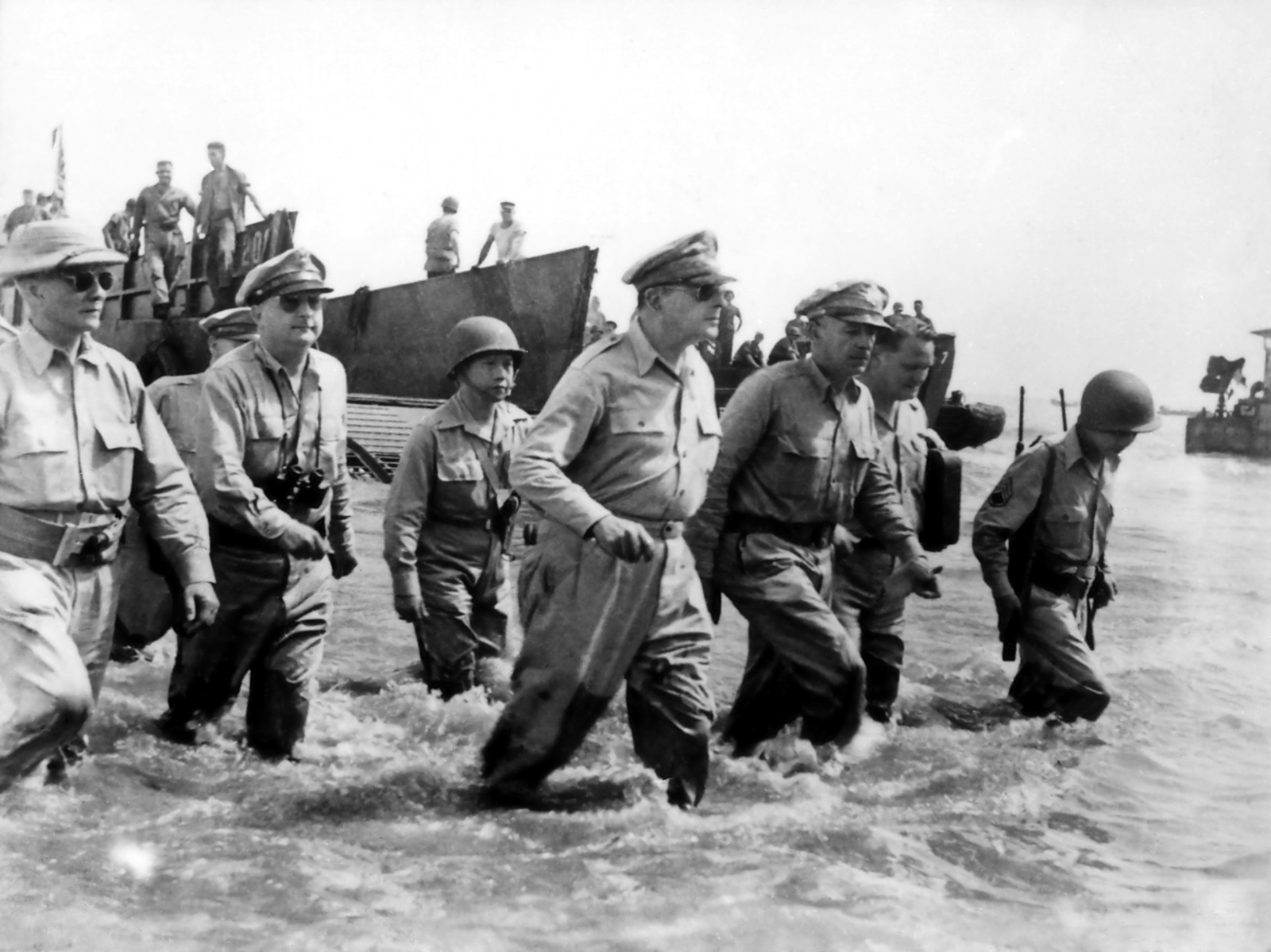
 When one thinks of prominent United States Military leaders (and influential Americans), it is but inevitable that General Douglas MacArthur should come to mind. Macarthur not only is one of only five men to ever rise to the rank of a 5-star general, but he also is the only man to ever become a field marshal to the Philippine Army. Talented, brash, and egotistical, MacArthur was raised on multiple military bases by his Army Officer father. Graduating in 1903 at the top of his class from West Point Military Academy, MacArthur continued on to a distinguished military career, which included creating and presiding over an armed force for the Philippines in 1935. In 1942 during WWII, he was declared the supreme commander of Allied forces in the Southwest Pacific, and received a Medal of Honor for his defense of the Philippines. In 1944, after successfully leading troops in an island hopping campaign against the Japanese, MacArthur was promoted to the rank of general of the army and was given control of all of the army forces in the Pacific. In 1945, MacArthur officially accepted Japan’s surrender and oversaw the demilitarization and reconstruction of the country. Later, in 1950, MacArthur commanded a victorious American-led coalition of United Nation Troops in the Korean War before leaving the military in 1951. Today, MacArthur is widely recognized as a remarkable individual, and his mark on American history is irrefutable.
When one thinks of prominent United States Military leaders (and influential Americans), it is but inevitable that General Douglas MacArthur should come to mind. Macarthur not only is one of only five men to ever rise to the rank of a 5-star general, but he also is the only man to ever become a field marshal to the Philippine Army. Talented, brash, and egotistical, MacArthur was raised on multiple military bases by his Army Officer father. Graduating in 1903 at the top of his class from West Point Military Academy, MacArthur continued on to a distinguished military career, which included creating and presiding over an armed force for the Philippines in 1935. In 1942 during WWII, he was declared the supreme commander of Allied forces in the Southwest Pacific, and received a Medal of Honor for his defense of the Philippines. In 1944, after successfully leading troops in an island hopping campaign against the Japanese, MacArthur was promoted to the rank of general of the army and was given control of all of the army forces in the Pacific. In 1945, MacArthur officially accepted Japan’s surrender and oversaw the demilitarization and reconstruction of the country. Later, in 1950, MacArthur commanded a victorious American-led coalition of United Nation Troops in the Korean War before leaving the military in 1951. Today, MacArthur is widely recognized as a remarkable individual, and his mark on American history is irrefutable.

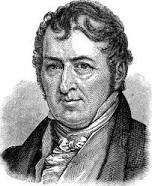 Eli Whitney was born in 1765, growing up on a Massachusetts farm. During the Revolutionary War he constructed nails to fill the demand caused by British embargos. He was a genius, and observed what people needed. While living in South Carolina, he saw how hard it was to separate the green seeds from the short-staple cotton. In 1973, he developed a machine able to do work 10 times faster than a slave using his hands; the cotton gin. It revolutionized the cotton industry, and was key to the American South’s “cotton Economy”. He also was the reason for the new need for slaves. He discovered arms manufacturing, the idea of machine-made, interchangeable parts, which began what would become known as the "American system" of mass production. Whitney completely revolutionized agriculture with his inventions and at the same time he began the development of American as a super-power. Arms manufacturing will eventually be seen in just about every factory of America. He was the main spark of the industrial revolution, and was the first advocate of technological progress.
Eli Whitney was born in 1765, growing up on a Massachusetts farm. During the Revolutionary War he constructed nails to fill the demand caused by British embargos. He was a genius, and observed what people needed. While living in South Carolina, he saw how hard it was to separate the green seeds from the short-staple cotton. In 1973, he developed a machine able to do work 10 times faster than a slave using his hands; the cotton gin. It revolutionized the cotton industry, and was key to the American South’s “cotton Economy”. He also was the reason for the new need for slaves. He discovered arms manufacturing, the idea of machine-made, interchangeable parts, which began what would become known as the "American system" of mass production. Whitney completely revolutionized agriculture with his inventions and at the same time he began the development of American as a super-power. Arms manufacturing will eventually be seen in just about every factory of America. He was the main spark of the industrial revolution, and was the first advocate of technological progress.

 George Washington was led the revolutionary army and helped defeat the British declaring the United States independent. In the Revolutionary War alone, he fought in multiple battles, including victories at Trenton, Princeton and Yorkton. He was also able to escape British forces after he was cornered in New Jersey by intelligently crossing the Delaware River. Washington’s victories at Saratoga helped convince the French to join the war on the side of the United States. Washington’s smart tactics helped defeat or fight off the British multiple times saving America from a total defeat. He also played important roles for the United States in both the French and Indian War and the Quasi War. Washington also set an important standard within the military. The elected officials would have authority over the military rather than officers. Although he had influence, he had to follow the directions of Congress. After the war he also gave up much military power. Washington was the first president of the United States and served two terms. Although he was urged to serve a third term, he declined on the basis that it was too King-like. He wanted to continue the ideas of the revolution by removing the country from a distant King. This set a precedent of two terms for almost 150 years. He attempted to create good relations with foreign nations while keeping American neutrality. He appointed to both Alexander Hamilton and Thomas Jefferson to his cabinet because of their opposing views. He wanted to represent both sides of the debate in order to have a healthy government. Washington was extremely influential because of his large role in the Revolutionary War and because he was the first president. By being the first he set a precedent for the coming presidents in which he promoted fairness, equality, and integrity.
George Washington was led the revolutionary army and helped defeat the British declaring the United States independent. In the Revolutionary War alone, he fought in multiple battles, including victories at Trenton, Princeton and Yorkton. He was also able to escape British forces after he was cornered in New Jersey by intelligently crossing the Delaware River. Washington’s victories at Saratoga helped convince the French to join the war on the side of the United States. Washington’s smart tactics helped defeat or fight off the British multiple times saving America from a total defeat. He also played important roles for the United States in both the French and Indian War and the Quasi War. Washington also set an important standard within the military. The elected officials would have authority over the military rather than officers. Although he had influence, he had to follow the directions of Congress. After the war he also gave up much military power. Washington was the first president of the United States and served two terms. Although he was urged to serve a third term, he declined on the basis that it was too King-like. He wanted to continue the ideas of the revolution by removing the country from a distant King. This set a precedent of two terms for almost 150 years. He attempted to create good relations with foreign nations while keeping American neutrality. He appointed to both Alexander Hamilton and Thomas Jefferson to his cabinet because of their opposing views. He wanted to represent both sides of the debate in order to have a healthy government. Washington was extremely influential because of his large role in the Revolutionary War and because he was the first president. By being the first he set a precedent for the coming presidents in which he promoted fairness, equality, and integrity.
 John Adams was extremely influential in the making of America. Adams became popular in America on the side of the patriot cause. In 1765 he wrote on imposition to the British government fighting the Stamp Act, which he stated deprived Americans from basic rights. Although it went against the patriot cause Adams defended the British soldiers who allegedly killed 5 civilians in the Boston Massacre. He wanted to promote the fact that everyone deserved a fair trial no matter who they were. Adams proposed a legislation that each state set up their own government that would help citizens have a better say in government. He also seconded and continued to back Richard Henry Lee’s proposal of independence. He was also on more committee supporting independence than any other Congressmen. He negotiated the Treaty of Paris which ended the Revolutionary War. Adams was also very crucial in mended relations with European nations. Adams played a large and very important role in starting and shaping our new nation.
John Adams was extremely influential in the making of America. Adams became popular in America on the side of the patriot cause. In 1765 he wrote on imposition to the British government fighting the Stamp Act, which he stated deprived Americans from basic rights. Although it went against the patriot cause Adams defended the British soldiers who allegedly killed 5 civilians in the Boston Massacre. He wanted to promote the fact that everyone deserved a fair trial no matter who they were. Adams proposed a legislation that each state set up their own government that would help citizens have a better say in government. He also seconded and continued to back Richard Henry Lee’s proposal of independence. He was also on more committee supporting independence than any other Congressmen. He negotiated the Treaty of Paris which ended the Revolutionary War. Adams was also very crucial in mended relations with European nations. Adams played a large and very important role in starting and shaping our new nation.

 Dr. Martin Luther King, Jr. was a gifted speaker, Baptist minister, civil-rights activist, and staunch advocate of nonviolence. He is easily considered the most influential leader of the American Civil Rights Movement of the 1950s. He fought to destroy Jim Crow segregation laws and eliminate social and economic differences between blacks and whites. King headed the Southern Christian Leadership Conference and played a crucial role in ending the legal segregation of African-American citizens in the South and other areas of the US, in addition to the creation of the Civil Rights Act of 1964 and Voting Rights Act of 1965. He received the Nobel Peace Prize in 1964 among numerous other honors for his relentless work and dedication to the cause of bettering black lives. He was assassinated in April 1968 and to this day is remembered as one of the most celebrated and admired leaders in history. On August 28, 1963 the historic March on Washington brought more than 200,000 people to the Lincoln Memorial to hear King’s legendary “I Have a Dream” speech, where he eloquently expressed his belief that someday all men could be brothers. This dream continues to be shared around the world and something this nation still strives to accomplish decades after his death. King’s life had a seismic impact on race relations in America. He has been honored with a national holiday, schools and public buildings named after him, and a memorial on Independence Mall in Washington, D.C. He was a revolutionary, visionary leader deeply committed to achieving social justice through nonviolent action and is the most influential man in American history.
Dr. Martin Luther King, Jr. was a gifted speaker, Baptist minister, civil-rights activist, and staunch advocate of nonviolence. He is easily considered the most influential leader of the American Civil Rights Movement of the 1950s. He fought to destroy Jim Crow segregation laws and eliminate social and economic differences between blacks and whites. King headed the Southern Christian Leadership Conference and played a crucial role in ending the legal segregation of African-American citizens in the South and other areas of the US, in addition to the creation of the Civil Rights Act of 1964 and Voting Rights Act of 1965. He received the Nobel Peace Prize in 1964 among numerous other honors for his relentless work and dedication to the cause of bettering black lives. He was assassinated in April 1968 and to this day is remembered as one of the most celebrated and admired leaders in history. On August 28, 1963 the historic March on Washington brought more than 200,000 people to the Lincoln Memorial to hear King’s legendary “I Have a Dream” speech, where he eloquently expressed his belief that someday all men could be brothers. This dream continues to be shared around the world and something this nation still strives to accomplish decades after his death. King’s life had a seismic impact on race relations in America. He has been honored with a national holiday, schools and public buildings named after him, and a memorial on Independence Mall in Washington, D.C. He was a revolutionary, visionary leader deeply committed to achieving social justice through nonviolent action and is the most influential man in American history.
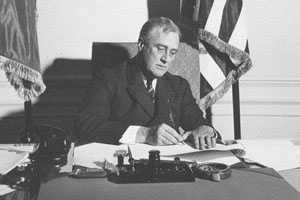 Franklin Delano Roosevelt was the most beloved U.S. President of the 20th century. He was America’s thirty-second and longest-serving president, and led America through not only the Great Depression, but also the second world war where democracy was fighting for its life. He helped the United States regain faith in itself and brought hope to its people with his legendary words, “the only thing we have to fear is fear itself”.
Franklin Delano Roosevelt was the most beloved U.S. President of the 20th century. He was America’s thirty-second and longest-serving president, and led America through not only the Great Depression, but also the second world war where democracy was fighting for its life. He helped the United States regain faith in itself and brought hope to its people with his legendary words, “the only thing we have to fear is fear itself”.
FDR was an angel sent down to be president at the time our country needed him most. Politically he was a genius, at home in the US in his first 100 days he pushed a record number of unemployment reforms through congress to pull America out of the great depression. He initiated programs that created jobs for the jobless with the WPA and Tennessee Valley Authority. additionally he established social security, SEC and FDIC, all which were so successful they still exist today. over his tenure unemployment went from 25% to 2%. He improved international relations with Latin America with the needed Good neighbor policy. He stayed with the United States through World war two and the tragedy that was the bombing of pearl harbor.
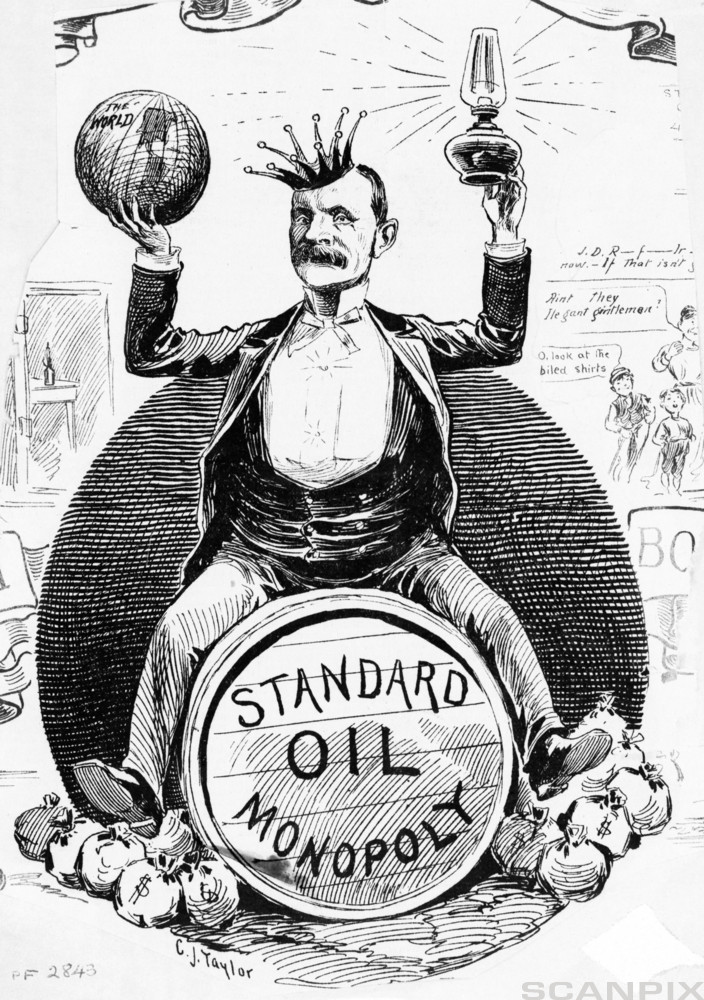
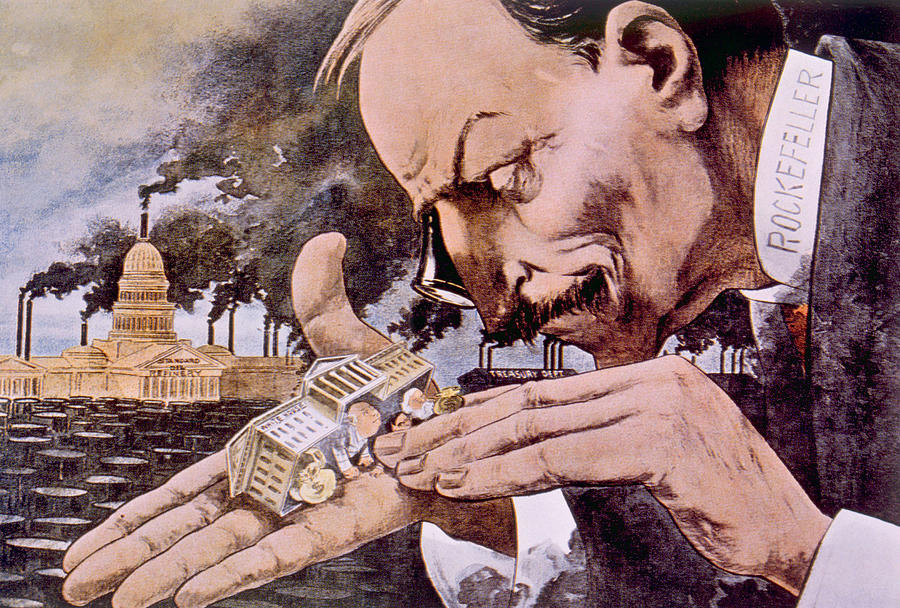
We have all known villains from the first book we read. Whether it was swiper the fox, the joker, or Rockefeller, it's obvious that these guys mean trouble. John D. Rockefeller is easily the most influential American villain to affect our society today. His sheer evil begin when he unfairly paid his way out of fighting in the civil war, when no one else had the resources to be able to opt out of fighting. Rockefeller, while part of a church, only held the protestant church back to old ways with having only sacred diversions and amusements instead of raising its voice against social and economic vices, partially caused by Rockefeller himself. Mainly, he created horizontal integration, a tool to use to wipe out any rivals in a certain business and ruthlessly wielded uncontrollable power with the standard oil company. His unofficial motto was "let us prey,” reflecting his sole purpose to take over the weak for himself, eliminate as many people as possible to maximize his profit. His trust was anything BUT trustworthy, never showing mercy and always savage so much that they nicknamed him “reckafellow.” During his era he was terrible, but his creation of the monopoly has throughout history put good hardworking people on the streets and helped the rich get richer. He has doomed the idea of starting a small business, because it may have already be dominated by a monopoly.

The first amendment gives the people of America the freedom of speech, and William Lloyd Garrison made sure he was heard. One of the most influential abolitionists of the 1800’s, he was quoted in his very first anti-slavery paper, the Liberator, to have said "I do not wish to think, or speak, or write, with moderation. . . . I am in earnest -- I will not equivocate -- I will not excuse -- I will not retreat a single inch -- AND I WILL BE HEARD." The leader in the abolition movement, Garrison wrote in his weekly newspaper from 1831, all the way until after the Civil War. After 35 years and 1,820 issues, Garrison never failed to publish a single issue. Not only a writer, Garrison was famous to speak out passionately for African American rights. He was one of the few people in the US to call for immediate emancipation which was very unpopular. He was revolutionary to America, the most influential abolitionists of his time. A firm believer in black rights, he believed that as they were Americans too, they deserve were also entitled to life, liberty, and the pursuit of happiness. He was the most radical of the abolitionists, but his beliefs have came true today while many other abolitionists of his day believed that blacks would never be equal. When Lincoln came out with his Emancipation Proclamation, Garrison supported it heavily.
William Lloyd Garrison was indeed not that influential because his influence was restricted to New England because there was no opposition to his abolitionist reasoning in New England. Most New England citizens were already against the spread of slavery because they did not value slavery as a part of their economy. Also, when the Free Soil and Republican parties were created in the mid 19th Century, Garrison's influence greatly diminished because he had no influence in politics. Many politicians such as Polk and Buchanan had a greater influence on slavery at the time with their expansion of slavery throughout the United States. Thus, Garrison was not influential.
ReplyDeleteIn New England, the majority of the citizens were against the expansion of slavery, as you stated, but they did not want total abolition. Although, Garrison himself opted to stay out of politics, his newspaper was given to politicians to read and influence them. In the South, "The Liberator" caused massive outcry among the slaves, which within seven months led to Nat Turner's rebellion. The Georgia state government offered $5000 for his capture, so they could put him on trial. A North Carolinian jury convicted him for disturbing, incendiary material. The South was obviously affected and bothered by Garrison's newspaper. As you can see Garrison had a large influence in both the North and South, and in politics.
DeleteEli Whitney's cotton gin was truly an incredible invention for the time. However, the influence of his invention is limited. Slavery no longer exists in America proving that his product only had influence in America for a short amount of time. In addition, America has transformed to an industrial society and moved away from the agrarian style it once was. Whitney has no influence on today's America, thus making his argument for the most influential American limited.
ReplyDeleteThe cotton gin nearly double the amount of cotton made every year after 1800. The excess amount of cotton forced new inventions like spinning and weaving machines to keep up with the amount produced and transportation like the steamboat to be invented. By 1850, the South produced 3/4 of the world's cotton improving trading relations with Europe. Because the South was producing so much cotton at the time, the number of slaves owned largely increased during this time. Although slavery does not exist in America anymore, the massive increase in slavery surely sped up the emancipation process causing much tension in society within that time period. Beside the fact that the cotton gin was extremely influential, it wasn't the only thing that Eli Whitney invented. He also manufactured the musket using interchangeable parts, and is known as the father of mass production. And as you stated, America today is primarily an industrial society, which contains hundreds of thousands of factories using the mass production method. So I would say that Eli Whitney was not only extremely influential in his time, but also in American society today.
DeleteWilliam Lloyd Garrison wasn't very influential. The Liberator didn't reach a very large chunk of the US population. His extremism made people view abolitionists negatively for many years. The majority of abolitionists were against slavery for economic reasons, not moral reasons. If Garrison was against slavery for economic purposes, he would have been influential. He did not influence the abolitionist cause.
ReplyDeleteYes, it is true that Ronald Reagan did many beneficial things and all that jazz, yet many people do not know about the dark side of his presidency and his charisma. He may have been influential, but for all the wrong reasons. Does infamy necessarily relate to influence? Shouldn't the influences on the American politics, economics, sociology, ideology, religion, and others be for the benefit of the American public?
ReplyDeleteRegan supplied weapons to countries that were our enemies. In fact, Reagan armed Saddam Hussein's Iraq during it's war against Iran, even though it was largely known that Iraq was using chemical warfare not only towards its enemies but also towards its civilians. This act violated the most basic human rights for the Iranians, and Reagan supported this. Reagan also succumbed to the demands of foreign terrorists. After several Americans were taken hostage in the Lebanon crisis, Reagan provided weapons to Iran in exchange for the release of some of these hostages. However, ultimately, Lebanon only took more hostages, playing Reagan and his government. Reagan also stole money from the Security Trust Fund to redress his own budgets. Lastly, but certainly not least, Reagan largely ignored the AIDS epidemic while tens of thousands of people were dying of the disease. In fact, in 1986, when AIDS fatalities were doubling every year, Reagan proposed cuts in funding for AIDS research. There are many other reasons why Reagan was a very bad and not influential man and president, but these are the most prominent and most crucial.
Yes, I agree in a perfect world all influences should benefit the American public. But that simply isn't how it is. We are not saying that what Reagan did in Iraq was good. But as you explained it greatly influenced American and International life all the way through today. And no we don't condone Reagan stealing from the Security Trust Fund, but it certainly was influential. This practice of stealing continued through George W. Bush's presidency, and played a role in the 2000 presidential election. It caused debates in Congress over what to do with social security in general, and today because of the money that was taken, the social security trust is running low in funds, which is causing problems for the baby boomer generation who are now retiring. So although Reagan wasn't always a good president or person, he greatly influenced America.
DeleteFor your information if your going to bold all of Martin Luther King's name then you should probably also bold the Dr. part.
ReplyDeleteHow about we keep the comments actually relevant.
DeleteYes Asha!! ^
DeleteThis comment has been removed by the author.
DeleteThis comment has been removed by the author.
DeleteFor your information if your going to bold all of Martin Luther King's name then you should probably also bold the Dr. part.
ReplyDeleteAnd for your information, posting the same thing twice does not make it any more relevant.
DeleteJohn D. Rockefeller can be easily mistaken for his influence on American history. In 1911, the Standard Oil Company was dissolved because it violated the Sherman Anti-Trust Act. Prior to the breakdown of the Standard Oil Company, muckrakers such as Ida Tarbell wrote about the negative aspects of the Standard Oil Company, greatly diminishing his influence on society. The court’s decision forced The Standard Oil Company to break into 34 independent companies spread across the country and abroad. Many of these companies have since split, folded or merged. For these reasons, Rockefeller is not very influential on American history.
ReplyDeleteFDR was indeed not that influential of a president. The unemployment rate stayed in double digits from 1931 to 1940, showing that he had little effect on the life of Americans during the Depression. FDR is also hated for the change he induced on his citizens, the changes he proposed reduced the power, status, income and self-esteem of those who profited most in previous years. He also tried to manipulate the minds of Americans by making them think the depression was over through his many Alphabet Soup programs when the depression was in full swing. For these reasons, FDR was not influential
ReplyDeleteIf MacArthur was so great, then why was he fired in the Korean War? Well, I'll tell you why. MacArthur had a massive ego, and when the Chinese crossed into North Korea and threatened US forces, MacArthur wanted to bomb China. Why? It was not because of the threat to US forces. It was because MacArthur had earlier wanted to invade North Korea, but Truman was hesitant because of the risk of China invading. MacArthur said he was certain this wouldn't happen, so when they did, his ego was crushed and he wanted to bomb China. Truman said no. The two got into a massive publicized argument, and Truman fired MacArthur because he didn't want the war to expand. The nation realized that MacArthur's strategy with China would have been a tragic mistake for the US. MacArthur "faded away" when people realized this. If he had not been fired, he would have been negatively influential by expanding the war into a massive war in Asia. He was not that great.
ReplyDeleteAlthough Eli Whitney created a useful device, the cotton gin, for his time, he cannot be held as one of the most influential Americans in history. You state that because of his invention, more slaves were brought into the US but the invention itself decreases the workload upon a slave. Another point is that in modern American society, we do not have slaves and in his time period, the influx of slaves would have simply widened the already gaping chasm in the social classes in the South. The rich white plantation owners continued to prosper while slaves were routinely killed and mistreated until after the Civil War under the actions of other more influential Americans like Lincoln and future African American rights activists.
ReplyDeleteYou're right... we no longer have slaves, but you know what we do have? FACTORIES, mass production, technological advances. The cotton gin was just the first machine he invented that people recognized. It allowed the cotton industry to boom, and was a primary reason of America's development as a superpower. Cotton production increased from 156,000 bales in 1800, to more than 4,000,000 bales 1860. And the cotton boom, yes, was the main cause of the increased demand for slaves in the early 1800s. The number of salves in American grew from 700,000 in 1790, to 4,000,000 in 1860. yes the workload decreases, but the demand increased. The cotton economy essentially controlled the destiny of the African slaves.
DeleteWilliam Lloyd Garrison was not that influential. His paper was not widely circulated, never reaching more that 3,000 people. (for reference, Uncle Tom's Cabin sold 300,000 copies within the first three months of publication) Garrison frightened southerners, but he also antagonized his own countrymen by attacking northerners who did not strongly oppose slavery, as well as the New England clergy for their refusal to unconditionally condemn slavery, describing them as "cages of unclean birds" and thereby driving more moderates away from the cause. The conclusion that he influenced Nat Turners Rebellion was reached by southern plantation owners who were afraid of garrison's radicalism, and probably does not hold much merit.
ReplyDeleteExactly, he did antagonize countrymen, and upset his fellow northerners... he played a key role causing tensions between the North and South. His methods, as you states, were antagonistic and definitely caused relations to become worse. It was proven he influenced Nat turner's rebellion, and was arguably the most well known salve revolt. I feel as though you're forgetting this is not about who was the BEST American, rather who was the most INFLUENTIAL. He worsened tensions, provoked slave revolts, and even terrorized his "own people." (Notherners). I'd say that's pretty dang influential. His paper was published for over 35 years after it was written. Although it only reached 3000 people, it's message was spread across the country. He was a firm believer in the freedom of slaves, and was true to his belief. This was a true American.
DeleteBy the way, I'm worried about you Andrew, you wrote this at 1:40 in the morning, get some sleep buddy, 8 hours<3.
DeleteAlthough George Washington sounds great, most Americans tend to over exaggerate his importance. His isolationism policy has been abandoned by the United States and his two term policy was consequently broken by Roosevelt. Yes it is true that he was of importance to the creation of the United States but ultimately today his belief system is quite irrelevant.
ReplyDeleteGeorge Washington? Even the textbook admits that Washington was a mediocre individual at best. The only reason he was selected to lead the Continental Army is that he was a Southerner. Most of the fathers of the revolution were from New England, so to gain crucial Southern support, they had no choice but to appoint Washington, a Virginian, to lead the army. As a general, Washington lost more battles than he won, and only the timely intervention of France and Spain allowed for the Colonies to be victorious. As President, it was Washington's cabinet (including John Adams, Thomas Jefferson, and Alexander Hamilton) that made his administration remarkable. Many may say that Washington valiantly turned down a third term, but in truth, a third term was not even a possibility for Washington. He was so frail and old that he died a mere two years after leaving office.
ReplyDelete